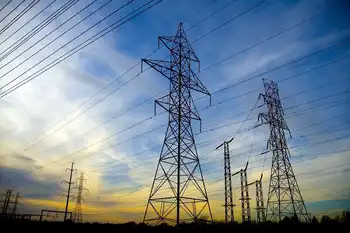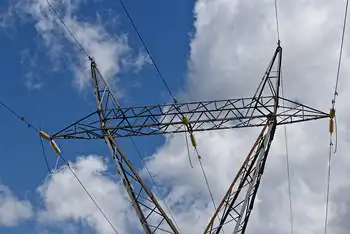Hydro Pulls Plug On Troubled Dam
VANCOUVER -- - A leaky, unstable hydroelectric dam that represents a serious threat to public safety could be retired as early as this summer, according to a B.C. Hydro spokesman.
Coursier Dam near Revelstoke has been giving engineers and safety inspectors nightmares for almost 40 years, resisting dozens of efforts to turn it into a stable, leak-free contributor to British Columbia's electrical grid.
A 1995 investigation found that a breach of the dam would result in loss of up to 10 lives and cause up to $50 million in property and environmental damage, Hydro reports in recent documents.
Hydro submitted a proposal to the B.C. Environmental Assessment Authority in December to decommission the dam, and will formally announce in early January that it's seeking public comment on its plan.
"A serious threat to public safety will be eliminated" and the "threat of loss of fish and wildlife habitat from dam failure eliminated," Hydro says in a brochure in support of its proposal.
Conservation groups are already applauding because removing the dam will restore Coursier Lake to its natural level, benefiting wildlife as well as stabilizing fish populations in Cranberry Creek downstream from the lake.
It's the first time in Hydro's history that the Crown corporation has walked away from one of its assets, Hydro dam safety inspector Ray Stewart said.
The 19-metre-high, 685-metre-wide structure holds 29 million cubic metres of water and supplies an eight-megawatt generating station -- enough electricity to supply about 6,000 homes.
There are dozens of private companies looking to develop small-hydro projects in B.C. that would provide a similar amount of electricity.
Stewart says the Crown corporation decided it's cheaper to decommission Coursier and restore the surrounding natural environment than to undertake a major rebuild.
"The dam has an ongoing problem like a cancer, if you like," Stewart said. "We just cannot fix it up in an efficient and economic way, so the best option for us at this time is to decommission the project and remove the threat to public safety."
Coursier is rated by the provincial government as a high hazard dam, with motorists travelling Highway 23S below the dam judged to be "at great risk" if it fails.
A high hazard rating by itself is not an indication that a dam is actually dangerous -- but it's an indication that a breach would threaten human life.
Across B.C., about 35 dams are rated as high hazard structures while a further 400 -- out of a total of 2,700 B.C. dams -- are rated a grade lower at "hazardous."
Hydro owns 42 dams, but its list includes all of the largest dams in British Columbia.
Many Lower Mainland dams -- including Seymour, Capilano and Coquitlam -- are in the high hazard category by virtue of their proximity to human settlement and are subject to weekly inspections as a result.
Located less than a kilometre above Upper Arrow Lakes Reservoir, Coursier Dam has suffered chronic erosion and leakage problems since it was built by the city of Revelstoke in 1963.
When Hydro took it over in 1971, it had already undergone a series of repairs for seepage and leaks. Hydro attempted a major repair in the mid-1990s, but the problems reappeared by 1998.
A recent prospectus includes photos of sinkholes, some big enough to swallow a construction worker, that extend into the core of the dam.
It says such sinkholes could cause the top of the dam to sag enough to release the reservoir behind it.
The plan is to excavate a notch through the dam and let the reservoir spill into an erosion-resistant channel down the original creek bed.
In the meantime, Hydro has been maintaining the water level in the reservoir at a level nine metres lower than capacity.
"It's the first time we've gotten to this stage, looking at decommissioning one of our own dams," says Stewart, noting that Hydro's estimate for the cost of the restoration project is $3 million.
"When we go through the dam safety process, we always look at the full range of options when we have a dam safety issue. That would include decommissioning, fixup of a dam or rebuilding with a new dam -- as we once did with the Alouette dam, for instance.
"We would always consider [decommissioning] as an option, but this is the first time we've got one to this stage."
About 30 small dams have been removed in B.C., but the Coursier will be the biggest one to go through the process.
A dam on the Theodosia River near Powell River, owned by Pacifica Papers, is also being decommissioned, but that process will take five years.
Stewart says Coursier could be gone by the end of summer 2003 -- provided that no unexpected issues arise during the environmental assessment process.
"The bulk of the work would be done in one construction season, over a period of three to four months," he said.
"The challenge that we have with this site is that it's at 4,000 feet or so. At that elevation, the construction season is very short. In some years it can be very wet. In some years the winter can be early.
"We create a big cut in the centre of the dam. We design it so that the largest natural flood will come through there quite safely.
"Once it's all revegetated and flat, I expect if you went out there in 10 years you wouldn't recognize it as a dam. It will look like a normal hill, I think."
The province's largest conservation organization, the Outdoor Recreation Council of B.C., is delighted by the initiative -- particularly the benefits to South Cranberry Creek below Coursier Lake reservoir.
"It has rainbows in it, it has kokanee, there have been evidence of bull trout, you have white fish," said council rivers committee chair Mark Angelo, a recent recipient of the Order of Canada for his conservation efforts.
"By re-establishing a natural flow regime, there would be some significant fisheries benefits."
Angelo and his colleagues at the recreation council called last year for the elimination of dams that provide only marginal benefits or have outlived their usefulness.
They made the call after an council investigation found that from 135 to 270 British Columbia dams provide only marginal benefits or have outlived their usefulness.
The group is also concerned that the province has only one or two dam safety officers per region, saying "it is unrealistic to expect that all dams in the province can be systematically and effectively reviewed and evaluated every year."
There's no doubting the integrity of Angelo's information -- hundreds of government and private-sector workers in the environmental management realm are graduates of the B.C. Institute of Technology fish and wildlife program, for which he is section head.
The council also found that 100 B.C. dams have been abandoned during the last century -- and that in addition to licensed dams, more than 2,500 unlicensed dams remain standing and likely unmanaged.
Angelo noted that roughly half the dams in B.C. are 50 years of age or older and that the US Association of Dam Safety Officials calculates the life expectancy of an unmanaged dam at 50 years.
Even with licensed dams, Angelo says that where it can be demonstrated that a dam's benefits are marginal, it should be a candidate for removal.
"In those cases, we believe the decommissioning option should be explored, particularly when you're dealing with a dam that may have outlived its usefulness but continues to have adverse environmental impacts.
"The Coursier dam could set a wonderful precedent. The Theodosia is another. But the ORC project also identified several other dams that had potential for decommissioning."
Angelo noted that the Theodosia is the first documented example in Canada of a dam being removed where restoring a river's health is the main objective.
Stewart said decommissioning is always one of the options Hydro considers when a dam needs upgrading.
But he notes that environmental impacts can be addressed, as they were a few years ago on the South Alouette River, by increasing the volume of water that's allowed to flow out of the reservoir.
The B.C. government, meanwhile, says it has no safety concerns about any of the dams close to population centres in the province.
"B.C. Hydro is very conscientious, and that helps me to sleep at night," says Jim Mattison, director of Land and Water B.C. Inc.
The province eschews describing dams in terms of hazard, in favor of a rating on their "consequence of failure" -- but it amounts to the same thing.
Mattison says all the 35-or-so "very high" consequence dams are fully in compliance with upgraded safety regulations introduced by the province in 2000.
He said the province is still working to bring all 400 "high" consequence dams into compliance -- but notes that outstanding concerns for them don't focus on public safety.
"There are some dams up the coast on old pulp mills' power sites where the walkways are corroded because of the salt air and stuff. It's more safety of workers and safety of our own staff if we go and look at it. "But I'm not concerned about the structural failure."
Related News

Website Providing Electricity Purchase Options Offered Fewer Choices For Spanish-speakers
DALLAS - Texas PUC Spanish Power to Choose mandates bilingual parity in deregulated electricity markets, ensuring equal access to plans, transparent pricing, consumer protection, and provider listings for Spanish speakers, mirroring the English site offerings statewide.
Key Points
PUC mandate requiring identical Spanish and English plan listings for fair access in the deregulated power market.
✅ Orders parity across English and Spanish plan listings
✅ Increases transparency in a deregulated electricity market
✅ Deadline set for providers to post on both sites
The state’s Public Utility Commission has ordered that the Spanish-language version of the Power to Choose…




